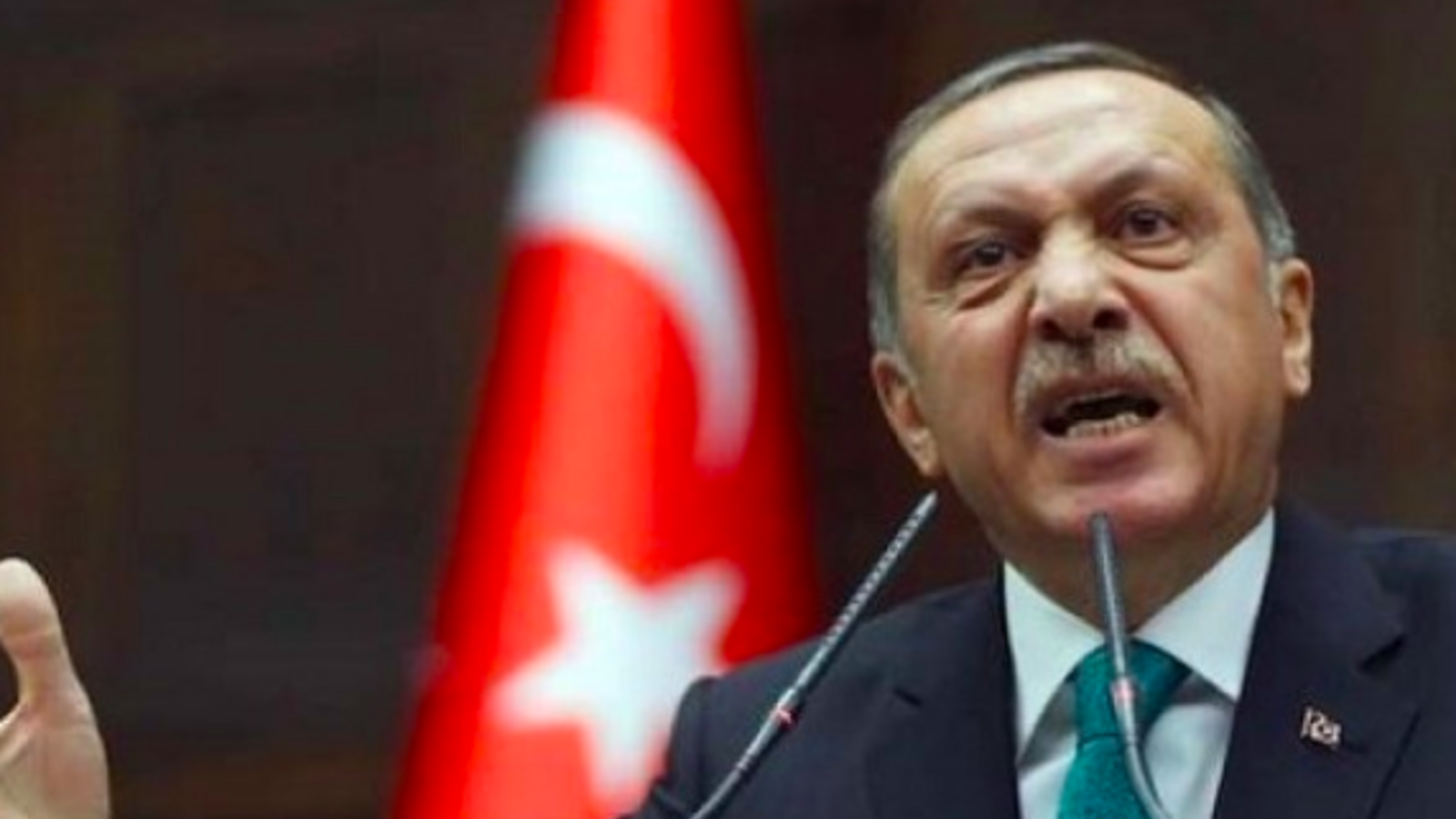If wars were won by fiery public speeches and threats alone, Turkish President Recep Tayyip Erdogan would have given historical conquerors such as Alexander the Great, Julius Caesar, Genghis Khan and Napoleon Bonaparte a run for their money. However, fortunately for this world and unfortunately for the Turkish leader his threats mean nothing and are worthless in the theatre of war.
Erdogan’s decade-long day-dream of expansionism and a resurrected Ottoman Empire are finally clashing with reality. It all began with the Turkish army’s massive losses in the northern Syrian region of Idlib, where Erdogan ordered an invasion allegedly to combat terrorism in a region representing the last bastion of the Islamist presence in the country.
However, Erdogan’s advances were met by a resilient defence by the Syrian army and Russian air bombardments that have caused over 60 casualties among Turkish soldiers and hundreds of other casualties in army ranks as well as in allied terrorist groups such as the Al-Nusra Front.
This rude awakening from Erdogan’s dream of occupying northern Syria has been paralleled by similar defeats and casualties among the Turkish forces in Libya. Erdogan announced a few weeks ago that he had deployed 35 military experts to aid the Islamist interim Libyan government headed by Prime Minister Fayez Al-Sarraj. Twenty of these have been reported killed, according to statements from a Libyan National Army spokesman, along with hundreds of Syrian mercenaries shipped by the Turkish army to join the Islamist militias in Tripoli. The Libyan National Army led by Khalifa Haftar is currently laying siege to the capital Tripoli.
Erdogan’s decision to send battle-hardened terrorists and mercenaries to Libya rapidly backfired, as those elements’ removal from Syria enabled the Syrian army rapidly to regain and liberate key strategic cities such as Aleppo and surrounding towns in record time. This consolidated the Syrian army’s presence in most of the country for the first time since the Syria Civil War ignited in 2011.
The losses in life and military prestige for the Turkish military have not been in line with the threats Erdogan has been making for months and his vows to “crush” those who oppose his plans in Libya and Syria. Erdogan’s threats against the Libyan National Army and Syrian President Bashar Al-Assad have been shown to be hollow. A reality check has been all the Turkish leader has received as the result of the purges he has enacted since the failed coup in Turkey in 2016 that led Erdogan to arrest and put on trial thousands of army personnel targeted for allegedly supporting Turkish cleric Fethullah Gülen whom Erdogan accused of plotting against him.
The result of these purges has been to reduce active Turkish military personnel to 355,000 men. While some attribute this reduction in the country’s armed forces to military reforms labelled “Force 2014,” the political decimation of experienced military commanders that pose a threat to Erdogan’s rule is evident in these so-called reforms.
The results speak for themselves. The Turkish army deployment in Idlib has been catastrophic to say the least, and it has been exposed to Syrian and Russian gunfire despite attempting to use the Turkish-allied Syrian militias to its advantage. This tactic has not served Turkey well, as the casualties have been enormous since the first day of the incursions, forcing Turkey to call for assistance from NATO and the United States.
Assistance came from NATO, but it was verbal in form, even as Erdogan attempted to invoke Article 5 of the NATO Charter in vain. This stipulates that an attack on one member of NATO is an attack on all of its members. But in the case of the Turkish invasion of northern Syria, the rule does not apply since Erdogan instigated an attack on a sovereign country and thus cannot be backed by NATO. Moreover, no NATO member is likely to relish a military encounter with a superpower like Russia just to indulge the lunacy of the Turkish president. This could be a prelude to a Third World War.
Article 5, which represents the cornerstone of the NATO alliance, has only been invoked once since the alliance was established in 1949, and that was when the horrific attacks of 9/11 occurred on US soil. Aside from this, and despite the occurrence of many global conflicts over the past 70 years, the article has never been invoked by any NATO member.
The hollow threats by Erdogan against Haftar have also fallen on stony ground since the Libyan National Army has been consolidating its positions and has even targeted Erdogan’s terrorist mercenaries and freight vessels carrying Turkish arms to the besieged forces of Al-Sarraj. The past month has witnessed a surge in the number of Turkish-made drones being shot down by either the Syrian or Libyan armies. These drones are manufactured by the Turkish company Baykar, which is owned by Erdogan’s son-in-law, and their failure in the field has caused a stir in Turkey about their quality and actual effectiveness.
At the end of the day, and despite Erdogan’s almost daily threats, he has been forced to lick his wounds. Last week, Erdogan was obliged to meet Russian President Vladimir Putin in Moscow, with the latter appearing to be gloating at the failures of his Turkish counterpart to deliver on any of the threats he has been filling the airwaves with over the past three months. After a humiliating meeting with Putin, whose forces have killed over 60 Turkish army personnel in air strikes, Erdogan capitulated and accepted a ceasefire in Syria.
While there are doubts that this agreement will hold, Erdogan’s Islamist hopes of invading Syria and controlling Libya have evaporated in a matter of weeks after a series of military and economic losses. The ongoing war in Syria has led to major rows within the Turkish parliament between the opposition and Erdogan’s supporters, and these have even ended up in fist-fighting inside the parliament.
Erdogan’s attempts to scare the Europeans with threats of the ongoing war in Syria leading to Syrian refugees on Turkish soil being free to travel to Europe, even on arranged shuttle buses to the Greek border, have provoked the Europeans and particularly the Greeks even further. The exploitation of the Syrian refugees as a bargaining chip in Turkey’s negotiations with Europe, as was the case five years ago, is no longer working. The European Union has already contributed 4.7 billion Euros to Turkey to aid the country with the growing refugee problem, even when Erdogan was ironically a main reason for its occurrence, and the Europeans have announced they will no longer be blackmailed by the issue.
The Greek government acted within its own sovereign rights in disallowing the thousands of refugees amassed on its borders from crossing into Greece. This was a message that the Greeks, along with the Europeans more generally, will no longer cave in to Erdogan’s political games. At a time when the coronavirus is spreading like wildfire across the world, it would have been an act of suicide for the Greek government to allow thousands of foreigners across its borders, potentially spreading the virus by moving freely and unchecked across the country and thus creating possible mass infections.
The so-called “Muhammadan” army organised by Turkey and the support it has garnered from Islamists across the globe has not changed the fact that Erdogan’s day-dream of resurrecting an Islamic caliphate from Syria to North Africa has come to a humiliating end. This is only the beginning of a well-deserved end to the Turkish tyrant who has spared no effort in destabilising his own country and the region for over a decade.
BY: Hany Ghorba
Hany Ghorba is a political analyst for Al Ahram Weekly.
Source: Al Bawaba



